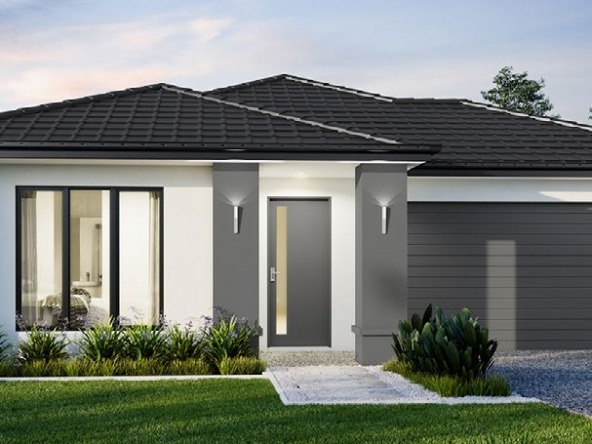The National Disability Insurance Scheme (NDIS) is an incredible initiative and also an eye-catching investment opportunity. It is supporting a better life for hundreds of thousands of Australians with a significant and permanent disability and their families and carers.
It also reduces the number of younger adults having to go into some form of aged care. Having NDIS will offer many people the independence and privacy they deserve. NDIS is also creating many jobs within the building industry and offers many investors the opportunity to purchase a long term investment.
It’s believe that there are over 4 million Australians who have a disability. Within the next five years, the NDIS scheme will provide more than $22 billion in funding a year to an estimated 500,000 Australians who have permanent and significant disability.
What are the investment benefits for property investors?
Property investment has been among the most successful investment strategies available. NDIS offers investor an opportunity to diverse the investment strategy through purchasing a higher yielding asset.
Here are some of the benefits:
- Specialist Disability Accommodation (SDA) has an increasing demand as the population continues to also climb. It’s anticipated that there may be up to a 60% shortfall in available homes in this sector.
- Government Support – The Australian Government has publicly announced their long term pledge of guarantying a continuation of the scheme for the next 20 years. The Federal Government is essentially funding property investors where the renters have been qualified and meet the requirements in place.
- Income security – Rental returns are currently back by Federal Government.
- High rental yields – These assets offer well above average rental yields seen in both residential and commercial property investment.
- Positive cash flow, especially while interest rates remain at an all time records low.
- Capital growth – with all property investment, there is always potential capital appreciation. Long term is always needed when anticipating capital growth.
- Tax deductions – there are many tax benefits when owning an investment property. Property outgoings, maintenance and tax depreciation are among potential entitlements that increase your rate of return on investment.
The gross rental yield is the most commonly favoured attraction to investing in SDAs. Rental yields have ranged between 7% – 18%, depending on the type of property, location, the design criteria category, and the number of renters in each property.
What are the risks of investing in buying a SDA?
Concentration limits
By design, there are restrictions on the number of properties that can be registered within a particular area or location. Before proceeding with the purchase a SDA through NDIS, you want to ensure you are aware with what has already been approved.
Vacancy rates
In the current market, the appears to be a significant shortfall of SDA properties available, so vacancy rates are less of a risk compared to normal residential property investment. However the NDIS system does not guarantee a rental return if you lose a renter or help source a renter for you. To mitigate this risk, many rental providers are establish 5 x 5 lease contracts as many renters will aim to occupy the home long term. Finding a renter is another issue. Once you have one, the Federal Government funding program will offer property investors a lucrative income return.
It is essential that you partner with the right people who will mitigate the vacancy rate, particularly when the lease expires. On losing a tenant, your investment is covered for up to 90 days under Federal Law with a continuity of payment between rental agreements. Please note this is not applicable for a new registered SDA property when sourcing your first renter.
Compliance and registration risk
In order to benefit from the NDIS scheme, you will need to meet a number of regulatory requirements to benefit from the Federal Governments funding program. You do not want to end up with a property that is not compliant in design or built against the necessary standards.
Working with a buyers advocate and experienced builder will mitigate this risk. Trying to do this form of investment autonomously can create big problems for you. The build costs are more expensive, so you want to make sure you know what you are doing.
Change in SDA payments
The NDIS system assesses the SDA payments based on a number of requirements including the property type, location, number of renters etc. There is a risk that the SDA payments can change in both the amount offered and the frequency of payments received. Although the National Disability Association have committed to pay new properties for 20 years, the payment scheme will be reviewed every 5 years.
In Summary
Investing in SDA can represent some exciting investment returns. Like any investment strategy, there are advantages and disadvantages to review in advance. It is recommended to seek advice from a financial planner who can help develop a cash flow budget to ensure you can afford the purchase and the ongoing costs in case you lose your rental income. A mortgage broker is also a trusted adviser who can assist in applying for the right finance and help you understand your overall borrowing commitments.
At Crest Property Investments we are excited by the initiate and see some great value. We have access to some excellent SDA properties in a variety of locations and would welcome the opportunity to help educate and support you through the purchase.
Please feel free to contact us if you’d like to learn more about NDIS or investing in traditional residential property investment. We specialise in sourcing brand new and off the plan properties for buyers.
Our YouTube channel and Market Insights also provide a wealth of information to assist you with many areas relating to property.
May 2021





